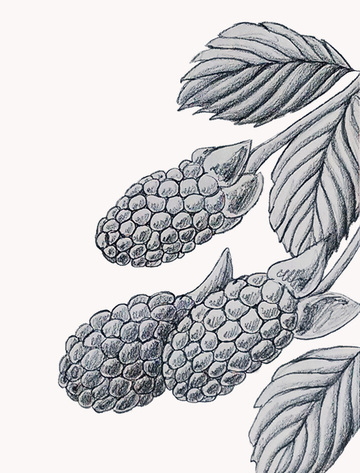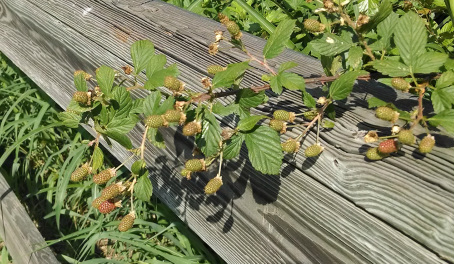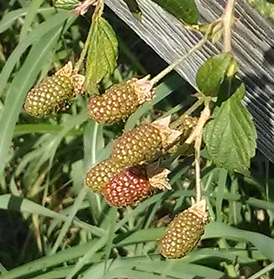

Of course you could eat the berries, and they are tasty. Choose plants that are not near enough to a highway that they are likely to have been sprayed with herbicides. The dark berries are extremely rich in nutritious phytochemicals, some of which are good in fighting cancer. The seeds are nutritious, too – they contain omega-3 and omega-6 oils, among other compounds.
The leaves and root-bark can be used to treat dysentery and diarrhea, sore throats, and mouth inflammations. The leaves can be used to constrict blood vessels, so they are good for wound care (to control bleeding and to limit bruises). Preparations from the leaves can be used to tighten tissues – such as skin for beauty treatments, and shrink hemorroids. Tea made from blackberry leaves can lower blood sugar, and it can relieve fluid retention and swelling or inflammation. Blackberry tea could be dangerous for pregnant women – it might stimulate uterine contractions.

Blackberries are an important food source and habitat for wildlife. And they have a positive relationship with bees – the bees pollinate the blackberry flowers, and the flowers yield food for the bees. Bee populations are dangerously stressed right now.
If you need a natural dye, you can get purple and dark blue colors from blackberry.
You never know when this might come in handy: you could make strong rope or twine from the fibers of the long blackberry canes, or stems. Various Native American peoples have known how to do this.
For information about visiting the Phinizy Swamp:
http://naturalsciencesacademy.org/
 RSS Feed
RSS Feed